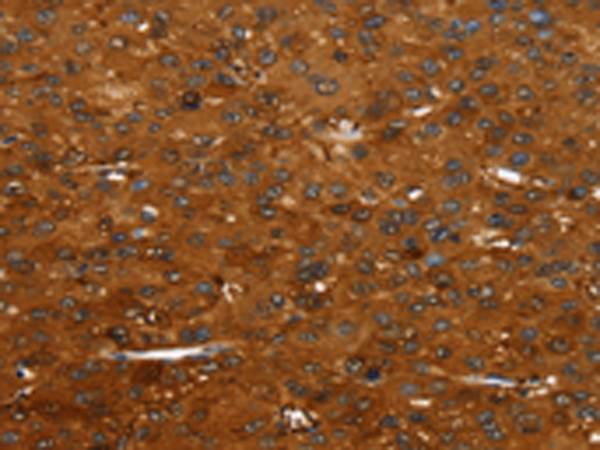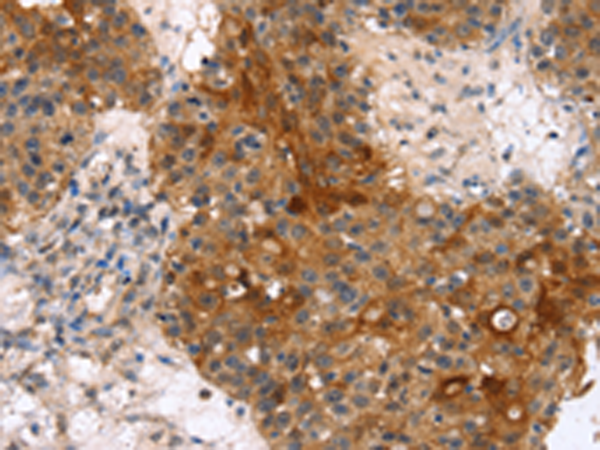

| WB | 咨询技术 | Human,Mouse,Rat |
| IF | 咨询技术 | Human,Mouse,Rat |
| IHC | 1/35-1/150 | Human,Mouse,Rat |
| ICC | 技术咨询 | Human,Mouse,Rat |
| FCM | 咨询技术 | Human,Mouse,Rat |
| Elisa | 1/1000-1/2000 | Human,Mouse,Rat |
| Aliases | ACH, CEK2, JTK4, CD333, HSFGFR3EX |
| Host/Isotype | Rabbit IgG |
| Antibody Type | Primary antibody |
| Storage | Store at 4°C short term. Aliquot and store at -20°C long term. Avoid freeze/thaw cycles. |
| Species Reactivity | Human, Mouse |
| Immunogen | Synthetic peptide of human FGFR3 |
| Formulation | Purified antibody in PBS with 0.05% sodium azide and 50% glycerol. |
+ +
以下是关于FGFR3抗体的3篇参考文献及其简要摘要:
1. **"Targeting FGFR3 in bladder cancer with monoclonal antibodies: Preclinical studies and clinical implications"**
- **作者**: Martinez-Torrecuadrada J, et al.
- **摘要**: 该研究探讨了抗FGFR3单克隆抗体在膀胱癌细胞系和小鼠模型中的抗肿瘤活性,显示其通过抑制FGFR3信号通路减少细胞增殖并诱导凋亡,为FGFR3高表达的膀胱癌治疗提供依据。
2. **"Antibody-based inhibition of FGFR3 in multiple myeloma: Preclinical validation of a therapeutic target"**
- **作者**: Grand EK, et al.
- **摘要**: 研究证明抗FGFR3抗体可选择性抑制多发性骨髓瘤细胞的生长,并通过阻断下游MAPK/ERK信号通路促进肿瘤细胞凋亡,支持FGFR3作为多发性骨髓瘤的治疗靶点。
3. **"A novel FGFR3 antibody-drug conjugate demonstrates potent activity in preclinical models of urothelial carcinoma"**
- **作者**: Loriot Y, et al.
- **摘要**: 该文献报道了一种新型FGFR3抗体药物偶联物(ADC),在尿路上皮癌模型中显示出显著抗肿瘤效果,通过靶向递送细胞毒性药物增强疗效,同时减少对正常组织的毒性。
4. **"FGFR3 inhibition by monoclonal antibodies delays disease progression in models of achondroplasia"**
- **作者**: Garcia S, et al.
- **摘要**: 研究利用抗FGFR3抗体抑制过度激活的FGFR3信号通路,在小鼠模型中有效缓解软骨发育不全相关的骨骼异常,为治疗遗传性骨骼疾病提供潜在策略。
以上文献涵盖FGFR3抗体在癌症(膀胱癌、骨髓瘤)及遗传病治疗中的应用机制与效果。
×